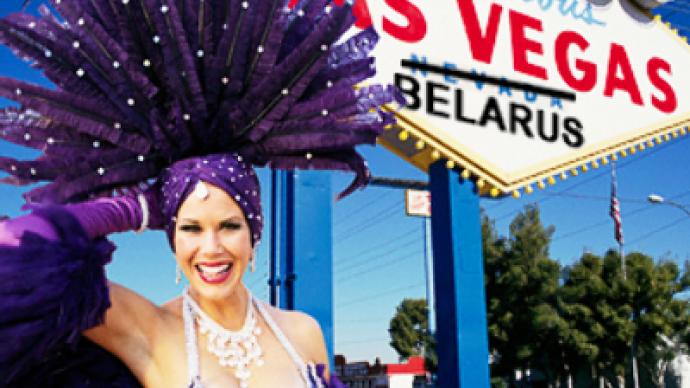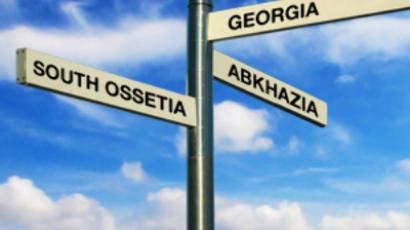Belarus to become post-Soviet Las Vegas

Russia’s gambling business is moving from Moscow to Minsk. The former Moscow casino Shangri La is opening its brand-new premises in Belarus, as the first to be licensed by the Belarusian Ministry of sport and tourism.
According to Russia’s law on the state regulation of gambling, which was passed three years ago, all casinos should have moved their businesses from cities to four special gambling zones in the country’s Krasnodar, Altay, Kaliningrad and Primorsky Regions by July 1, 2009. The owners of the business vigorously opposed the very idea, and up to the last days there had been rumors that the enactment of the law would be postponed or cancelled. Those hopes seemed quite reasonable, as the gambling business was providing more than $2 billion for Russia’s budget. It also formed a substantial share of some local budgets, especially in such big cities as Moscow and St Petersburg, and nothing was supposed to substitute for those lost earnings.
Moreover, after three years, there is still nowhere to move the one-arm bandits to: not one of the four planned “gambling zones” is ready to receive clients. In the Krasnodar region, there is some infrastructure, but no buildings. In the other three – no infrastructure and not even any approved plans for the construction of the “zones”. By June, the Kaliningrad region had only just issued a tender for leasing the land for the gambling centers.
However, there was no indulgence from Russia’s government and, from July 1, gambling business all over Russia became illegal. Some casinos have found a way out by changing labels – they transformed into restaurants, sporting poker clubs and internet-cafés (with an opportunity to play in internet-casinos, of course). Others have begun to look for better places outside Russia. And it seems that some glances settled upon Belarus.
With open arms
Unlike Russia and Ukraine, which also banned gambling on its territory two months ago, Belarus has quite positive feelings towards this kind of business. The representatives of the Belarusian Ministry of sport and tourism, which is responsible for regulating the gambling industry, say there are no plans to make gambling taboo in Belarus. On the contrary, there is interest in creating big casinos.
At the moment, there are more than 8,000 casinos and gambling halls in this small country, which borders both Russia and Ukraine. However, they are for the most part minor enterprises. Foreign capital share in this business is only 10 per cent, and Belarusian authorities clearly do not mind raising this share, as in this case gambling would become a more substantial source of income for the country’s budget. So far, the state is getting just over $13 million annually, and it will certainly be glad to increase this sum (Moscow alone used to get some $120 million annually from the gambling business).
Thus, Belarus will greatly appreciate Russia’s gambling industry (as well as the Ukrainian) moving to its territory. According to Vasily Korzun from the Belarusian Ministry of Sport and Tourism, Belarus is interested in attracting big players to the gambling sector, and it would be glad if Russia’s assets come to the country.
And it seems that Belarus has even been preparing to welcome Russian business. At the moment, President Aleksandr Lukashenko is ready to sign a decree “on some measures for improving the procedure for carrying out activities in the sphere of the gambling business”. According to Lukashenko, this decree is to make gambling laws in Belarus “the best in the world”. Rumors has it that the new laws will open up a wide door for Russian investment into Belarus. Belarusian authorities expect that the Russian gambling business will decide against spending the estimated $10-12 billion to develop the four ‘gambling zones’, as it is too much money in a time of economic crisis, and would rather create the fifth ‘zone’ in Belarus. The country has good infrastructure, and importantly, it is closer to Moscow than the Kaliningrad region.
Moreover, there are plans to build a large gambling and entertainment complex near Minsk Airport, so that the clients will be able to go to the casino right after touching down. The draft document on this issue is now at the Belarusian Ministry Council for approval. The complex is to be situated in a duty-free zone, and a citizen of any state will be able to stay there for 72 hours.
Adaptation
However, there are rumors that only big players will be able to play by the new rules, which means that hard times will come for the Belarusian gambling business, most of which is represented by small companies. Some in the Belarusian media even claim to have seen the draft presidential decree, which, they say, raises the necessary authorized funds to heights unreachable for many Belarusian companies – 50,000 euros for casinos and gambling halls. This sum should be deposited in a bank to guarantee awards to the winners. At the moment, the required authorized fund is the same for gambling and all other companies in the country (around $1000). Another new rule is that all playing machines should have a return rate of 90%. There are no machines of such quality in Belarus at the moment (usually the rate is 80-85%, like in most countries of the world), while in Russia that rule was introduced several years before.
And these are not the only reasons why Belarusian gambling investors might oppose the government plans. Specialists underline that the Russian entertainment monsters would fight savagely for the Minsk market – a battle not likely to be won by Belarusian companies. So in a year or two, the whole industry would be concentrated, obviously, out of Belarusian hands. Besides this, the new rules would break up many local gambling businesses in the country’s small cities, which are the basis of many of the regional elite’s well-being.
On the other hand, there are optimists in Belarus who say that the increased flow of Russian gamblers will outstrip the costs of increased competition. All in all, specialists say it will take Belarusian companies around 2 years to adapt to the new rules, if they are accepted. But for many local businessmen, being a manager in a big Russian company is not much worse than having a business of their own, which means constant struggles with red tape. That is why it may well turn out that, together with the government, they just wait until the Russian businessmen pull all the chestnuts out of the fire for them.
Darya Sologub for RT













